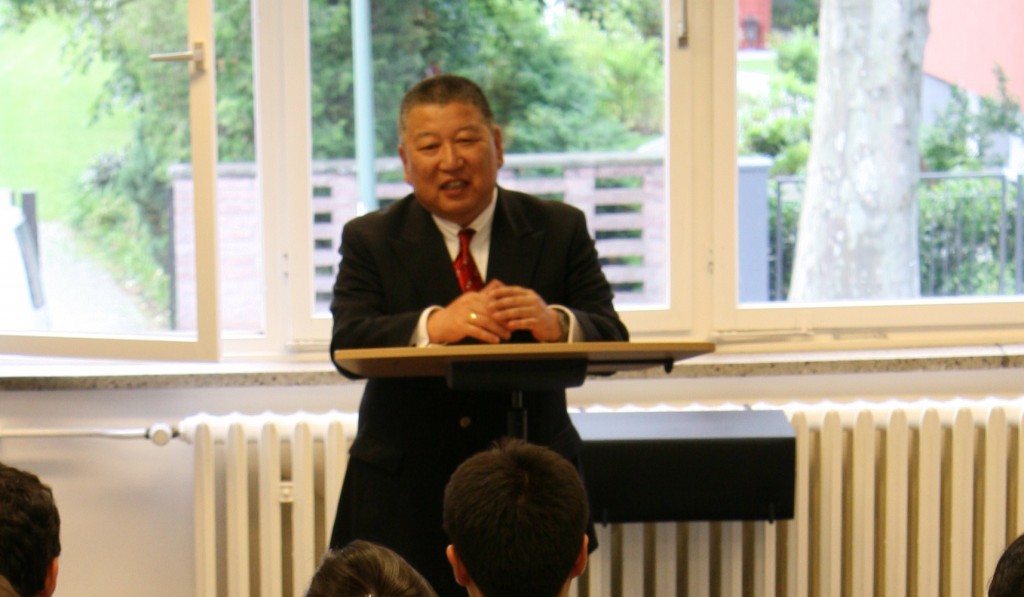
Perhaps one of the most fascinating things about ECLA is its international community. ECLA is a place where one meets people from all over the world, where one can embrace many different cultures by having the world in just one room. On Wednesday, May 27, all the members of the ECLA community had the chance to attend a Mongolian Evening, dedicated to the presentation of Mongolian traditions and culture.
Tuvshinzaya Gantulga (AY 2009, Mongolia) opened the evening with a very sincere confession: “If I—a Mongolian—would never talk about my country, never make my culture accessible, how could I expect others to know about my country?” For his speech, Tuvshinzaya prepared answers to the questions most frequently asked by students. This proved to be the right method, mostly because the questions were so honest, a true blend of natural curiosity and a will to learn more. In order to present a clearer picture, he constantly made comparisons which were familiar to everyone, so that we were acquainted not only with the meaning of what he introduced in numbers or words, but we also managed to truly grasp what he was referring to by having it presented in concepts close to our established way of understanding. For example, Mongolia is “four times larger than Germany”.
This brief explanation of Mongolia’s tradition, culture and history was followed by the introduction of the Mongolian ambassador to Germany, Dr. Galbaatar Tuvdendorj, who addressed the audience and talked in more detail about the turbulent changes in the political organization of the country that took place over the past years, the impact these changes had on society, and the current situation in Mongolia. As far as economy is concerned, Mongolia, like the rest of the countries in the world, is caught up in the financial crisis that has been shaking the world over the past year. What is important is that Mongolia is focused on education and makes sure that its students have the opportunity to study abroad so that later on they can apply their knowledge to better the prospects of their country. Dr. Galbaatar, who, prior to accepting his post as an ambassador in Germany, was the Vice President of the Mongolian Academy of Science, said that he was very pleasantly surprised by ECLA’s programme and the focus it has on an understanding of values. He believes that it is exactly this focus that the world lacks, and that only through respecting values can we strive towards the establishment of peace and balance in this world.
After Dr. Galbaatar’s speech, we enjoyed some traditional Mongolian dishes — such as “Buuz” or “????”, traditionally eaten at home at the Mongolian New Year. What followed was a live performance by the Mongolian folk band Egshiglen in our lecture hall. At once, past and present were intermingled as the building was filled with the sounds of traditional Mongolian music, which both calmed and excited the spirit. This created a perfect atmosphere, suitable to wrap up this evening into one of the best presents that we could ever get. So, Bayarlalaa (Mongolian for thank you!) to the guests and to everyone who participated in the organization, who made this possible and who took care that we could experience such a palpably authentic event.
By Elena Volkanovska (’09, Macedonia)
